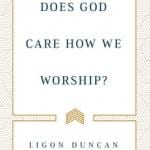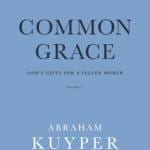Continuing to plod slowly through the Church Fathers, I’ve finally finished the volume containing Augustine’s ‘Tractates on the Gospel of John’, ‘Homilies on the First Epistle of John,’ and the ‘Soliloquies.’ At least, I’ve read the first and last of those, having previously read the more recent translation of Augustine on 1 John.
Overall, the sermons on the Gospel of John are excellent, and well worth reading. What Augustine finds worth asking and commenting about isn’t always what jumps out at us, and because of that at times it can be a bit jarring. Still, he’s not the most important post-New Testament writer for nothing. Augustine’s writings are generally solid gold, and this is no exception.
The ‘Soliloquies’ are also interesting, but not quite as solid as the sermons on John. As the editor’s introduction points out this is likely because this is a book written shortly after his conversion. It therefore has all the enthusiasm of a new convert mixed with sincere intellectual holdovers from Augustine’s pagan days. I do think it’s interesting that he begins his life as a Christian with a proto-theory of relativity (“without a knower, nothing can be true” II.15), and later in life moves on to other ideas about reality. Still, even in these early days of his life as a believer he has come to believe that the Truth can be found only through Christ. He just clearly hasn’t thought that out yet (not that I have, of course–Augustine as a young Christian is still miles ahead of me).
But the main event in this book is the 450 pages of sermons through the Gospel of John. As Gerald Bray points out in his excellent book on Augustine, Augustine has the habit of reading Scripture poorly through the allegorical method while still coming to theologically robust conclusions. And they are worthwhile conclusions indeed. To give just one randomly-chosen example:
“For He, who is altogether without sin, has no elements of discord in Himself; while the peace we possess, meanwhile, is such that in the midst of it we have still to be saying, ‘Forgive us our debts.'” (LXXVII.4)
The volume is full of nuggets like this. And while reading the church fathers isn’t for everyone, if you are the sort to read them then this book is for you.
Dr. Coyle Neal is co-host of the City of Man Podcast and an Associate Professor of Political Science at Southwest Baptist University in Bolivar, MO













